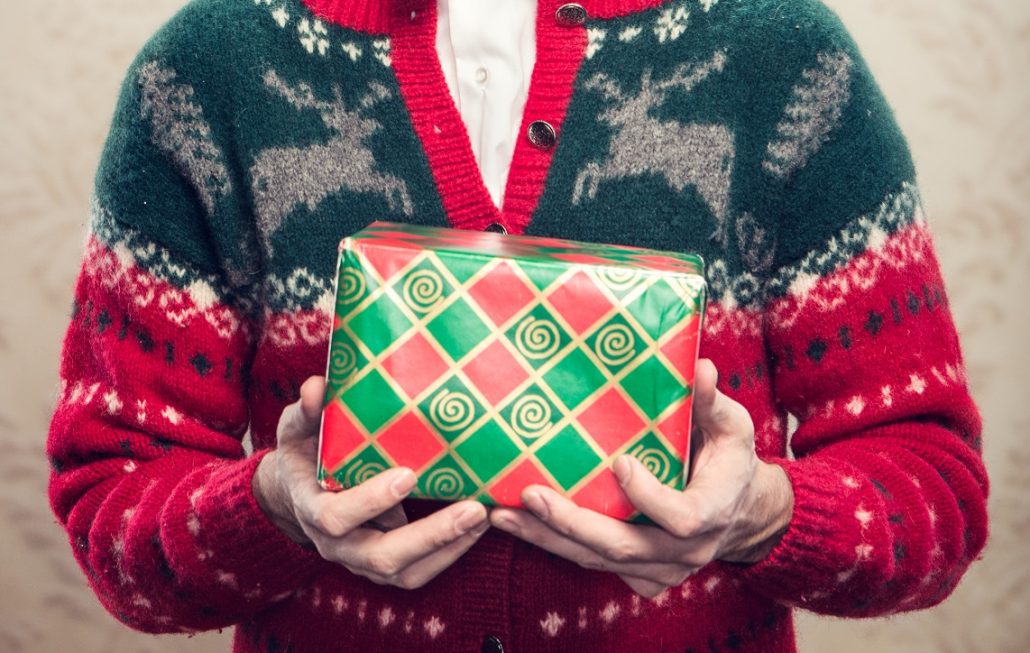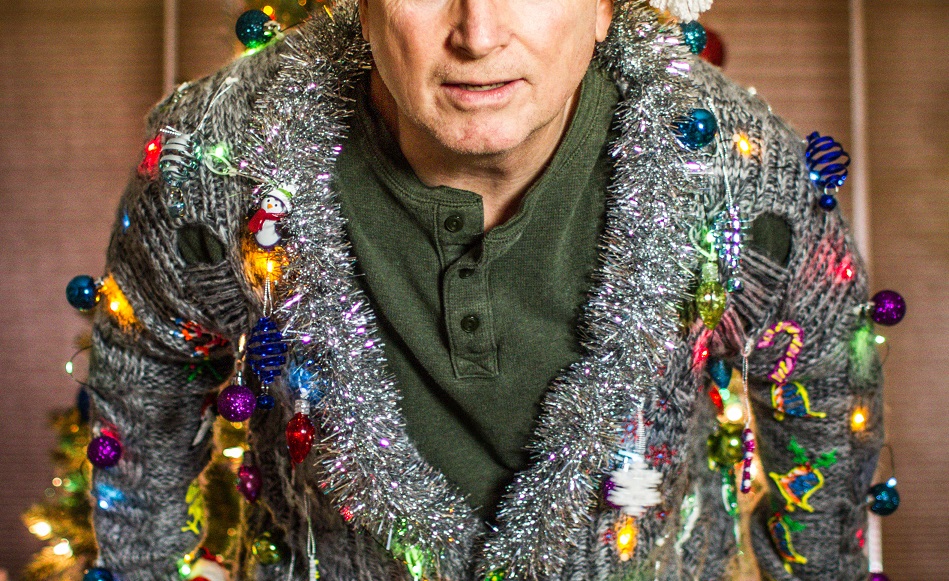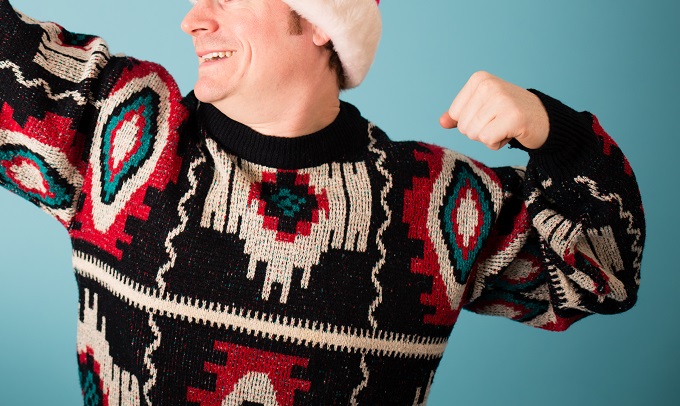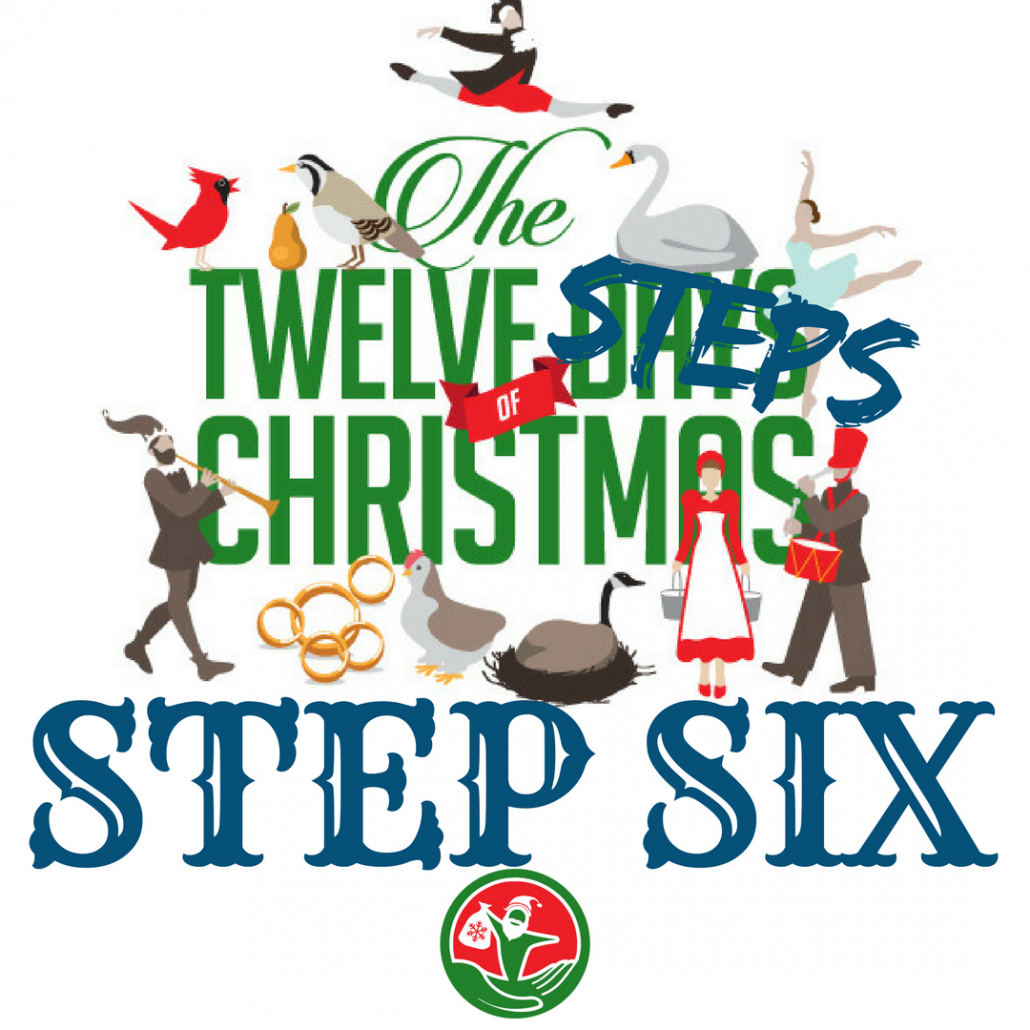by Justin Mckibben | Jul 31, 2018 | Addiction, Addiction Treatment, Coping Skills, Family, Mental Health, Parenting

(This content is being used for illustrative purposes only; any person depicted in the content is a model)
One of the most harmful myths about alcoholism that needs to be debunked is the idea that drinking does not affect anyone but the individual. People tend to be self-centered when lost in their cups, and so many believe the only person who has to deal with their drinking problem is them. No one else has to spend the money, or feel the hangover, or suffer the consequences… right?
But we know this isn’t true. The behavior of an alcoholic or a drug addict impacts others, especially the people closest to them. An alcoholics family can experience a great deal of pain and carry plenty of consequences as the result of their loved one’s drinking.
However, none are as vulnerable as the children of alcoholics. Frequently, the impact of parental alcoholism on a child can last the rest of that child’s life. Even as children, they may do their best to conceal the effects at the time, but one way or another it always leaves a mark. Here are just some of the ways that parental alcoholism affects children.
-
Low Self-Worth
One way parental alcoholism affects children is by creating a lot of self-doubt and self-criticism in many children. Often, the children of alcoholics believe their own shortcomings are the cause of disturbances in the home. This can lead them to be extremely critical of themselves. They may believe they are not good enough, and frequently develop low self-worth and low self-esteem.
Even as adults, the children of alcoholics can feel inadequate.
Over time, the tendency to doubt themselves and be so critical can lead to other issues, including depression and anxiety disorders. Parental alcoholism can lead a young child to feel like they are unworthy or responsible for more than is actually under their control.
-
Fear or Abandonment
In most cases of parental alcoholism, the parent is emotionally unavailable or even physically not around. Sometimes a parent will be asked to leave due to their drinking by the other parent. Other times, the parent will get in trouble with the law and may go in and out of institutions. In some cases an alcoholic parent will have to be hospitalized, or even worse, they pass away.
All of these circumstances can lead the child of an alcoholic to develop a deep fear of being abandoned. Losing a parent, even if only periodically, can be devastating for young children.
-
People Pleasing
When a child has developed low self-worth, is extremely critical of themselves and has a fear of being abandoned, it only makes sense that they will constantly seek approval from others. Growing up in a house with parental alcoholism as the norm, a child always trying to make others happier will become a people-pleasing adult.
This can be especially true if a child’s alcoholic parent was mean or abusive when they were drunk. It can intensify the fear of not being enough, or of being abandoned. As an adult, the children of alcoholics can grow up with a fear of confrontation. They may spend their lives avoiding any form of conflict. Furthermore, a child of an alcoholic might even sacrifice their own well-being in order to avoid making others angry.
Sadly, with people pleasing a child will learn to suppress their own emotions, making them an emotionally stunted adult.
-
Overcompensating
Sometimes, the child of an alcoholic is so committed to people pleasing that they become a perfectionist. Parental alcoholism can cause a kid to become incredibly responsible, hoping to gain some control of the world around them. These children of alcoholic parents become overachievers or workaholics.
However, there is no guarantee that they will not try to overcompensate in the opposite direction. An alcoholic’s child may also become very irresponsible members of society. They may adopt a self-destructive lifestyle similar to their parents in order to try and escape the pressures of an alcoholic home. Thus, the cycle continues.
-
Normalizing
If parental alcoholism has played a key role in the household, it is hard for a child to determine what “normal” is. This inability to distinguish the good from the bad makes it much more difficult for children to decide which role models to follow. Not only that, it makes it hard to know the right way to treat other people.
If you grow up in a home where abuse and alcoholism are normal, you are likely to engage in that behavior and seek out relationships like that later on in life. By normalizing the harmful behaviors and the toxic relationships that a child of an alcoholic can be exposed to, they are also building a faulty foundation for future relationships.
-
Difficulty with Relationships
When growing up with parental alcoholism in the home, kids will experience things like:
Sadly, they may accept that these things are all normal. Thus, these children can develop severe trust issues. If you have grown up developing serious trust issues and/or a lack of self-worth, getting close to anyone can seem almost impossible.
In order to be intimate with others, you have to rely on others for emotional attachment, fulfillment, and interdependence. These things can be very hard to reconcile for the child of an alcoholic home. And if you are so critical of yourself, a strong fear of abandonment will definitely be very hard to overcome when trying to build relationships. Pretty much every issue we mentioned before this point makes it extremely difficult for these children to have healthy relationships.
Overcoming Parental Alcoholism
In truth, there are innumerable ways that parental alcoholism could affect a child. Because we are always trying to figure out what things mean as children, we could adopt completely different ideas based on a variety of experiences. Some people are more sensitive to certain kinds of problems, while others may use their bad experiences as motivation to set better standards for themselves. In short, not all children of alcoholics will be affected the same.
However, many of the issues on this list appear consistently in studies of adult children of alcoholics. For years, these are some of the most common characteristics identified in research on the families of alcoholics. Regardless, one thing remains the same- parental alcoholism can significantly influence a child’s development. Time and time again, we can see how the impact of growing up with parental alcoholism can shape an adult.
A large proportion of the people who seek help for substance use disorders like alcoholism or drug addiction have kids. Sadly, a large number of parents do not seek help because they are afraid of being away from their children. Some even worry they may lose their children. Still, every year countless children lose their parents to alcohol and drug use. That is why it is so important that parents and caregivers receive comprehensive and compassionate support in holistic addiction treatment.
If you or a loved one is looking for treatment, make sure the program you choose has ways for the family to be involved in the recovery process. Not only is it good for helping people understand what their families go through, but they also teach families about what the suffering individual goes through.
Treatment for alcoholism or addiction is not about taking families apart, but about bringing them together.
Palm Healthcare Company believes in uniting loved ones through the practice of healing mind, body and spirit. Our holistic addiction treatment program gives each individual an opportunity to create a personalized recovery plan that helps them to overcome their addiction and get back to what matters most. If you or someone you love is struggling, please call toll-free now.
CALL NOW 1-888-922-5398
by Justin Mckibben | Dec 24, 2017 | Alcoholics Anonymous, Christmas, Coping Skills, Family, Holiday, Recovery, Self Improvement, Sober Fun, Sobriety

(This content is being used for illustrative purposes only; any person depicted in the content is a model)
Ladies and gentlemen, we have made it to the 12th Step of Christmas!
Those total lords have been jumping all around, the maids have stopped milking and are dancing with the other ladies. All the beautiful birds are flying around like crazy… but we have been waiting for the bass drop… BOOM! In comes the 12 drummers, and I mean they come in like the Ohio State Marching Band, just killin it!
Still don’t know why your true love brought so many birds, but hey it’s a party.
So to follow the classice sense of the song, we are going to rehash the other 12 Steps of Christmas for our final thought.
1. Admitting that I am powerless over the Holidays and they can make my life unmanageable.
2. Came to believe a Power Greater than myself could restore my holiday cheer
3. Made a decision to turn your Holiday over to the care of your Higher Power.
4. Made a Searching and Fearless Christmas List.
5. Admit to ourselves and another human when we are being a Grinch.
6. Become entirely ready to let go of the Ba Humbug.
7. Humbly asked our Higher Power to remove our shortcomings of holiday spirit.
8. Made a naughty list and checked myself twice; became willing to make amends and be nice.
9. Made amends when it wouldn’t ruin someone else’s Christmas.
10. Continued trying to stay off the naughty list, and when we are naughty we promptly get jolly.
11. Seek more of the Christmas spirit with through prayer or meditation.
And finally….
Step 12: Carry the Christmas Spirit to others in all our affairs
This is what it is all about, really. This is why Christmas is such a beloved and cherished holiday for so many around the world. Without trying to take anything away from the vital role that religious faith plays in it for many, the spirit of Christmas is about sharing peace and love, goodwill toward others, compassion and connection.
We have talked about all of this through every step of the 12 Steps of Christmas. That is because love, peace, compassion, connection are all in the spirit of Christmas AND in the spirit of the 12 Steps of recovery. It isn’t hard to draw this relationship because at the core they give us inspiration and hope to build a better life, with fulfilled relationships and meaningful purpose.
In the 12th Step of most recovery fellowships they put a lot of emphasis on carrying the message of recovery. In Step 12 of Christmas let us say we can use the same idea; spread that love and connection to everyone. Of course there is the literal giving of gifts during Christmas when we try to bring joy to others with materials, but in the end these are just an offering or a gesture by which we communicate that love and connection to them.
It is just one way we give of ourselves to spread the love.
Practice the Christmas spirit in all things…
The truth is too often we forget that these attitudes and practices are not just meant to be done on the holidays. Too many people forget about acceptance, willingness and openness when the sleigh bells have come and gone. Many will make strong resolutions for the New Year, but few will remember to carry these principles on with them. Those who work the 12 Steps in recovery are actually very fortunate to have a program that provides a consistent practice of compassion and growth.
The 12 Steps remind us of the importance of self-awareness, reflection, humility and selfless action. They give us an outline for personal development while helping us try to mend damage done in active addiction.
So even if you are not in recovery from drugs or alcohol, you can learn a lot about yourself and about your impact on the people who matter most to you. Doing things like taking inventory, addressing your character defects and helping others is really just a path toward spreading the cheer, joy, love and connection that Christmas gives us.
This year, try to carry the spirit of Christmas in all things. Try to remind yourself to make every day count; to move away from the attitudes that hold you back and toward the wish list of a sober and fulfilled life.
Keep the Christmas party alive every day. Hey, you can even keep partrige. He’s not such a bad bird anyway.
Merry Christmas. Happy Holidays.
Remember, this time of year the best gift you can ever give is yourself. For those who suffering from addiction, that means the opportunity for a life of recovery. If you or a loved one is struggling with substance abuse or addiction, please call toll-free now.
CALL NOW 1-888-922-5398
by staff | Dec 23, 2017 | Alcoholics Anonymous, Christmas, Coping Skills, Family, Holiday, Recovery, Sober Fun, Sobriety

(This content is being used for illustrative purposes only; any person depicted in the content is a model)
So, the party your true love got together is kind of intense. Suddenly there are 10 dudes who claim to be lords are jumping around, and it looks like they might start a mosh pit with the 9 ladies dancing.
Needless to say, Christmas in recovery never sounded so wild.
Anyway, welcome back to the 12 Steps of Christmas in recovery, where we are putting a holiday twist on each of the 12 Steps of recovery used all over the globe.
Are you ready to talk about the next step?
Step 10: Continued checking myself to stay off the naughty list, and when we are naughty we promptly get jolly
After making our naughty list in Step 8 we have a pretty good idea what mischief we made to get on that list. We took a look at how we had wronged people over the year and how it has effected our holiday so far, and in Step 9 we began looking for ways to make this Christmas better by doing more for those we have harmed.
But we still have to make sure we don’t stay in our naughty ways. Step 6 and Step 7 we looked at how our moments of Grinch-ness and Ba Humbug have to be recognized. Now we continue to keep tabs on that naughty list. If you are anything like me, checking it twice and calling it a day just won’t cut it.
So throughout the holiday we need to watch out for those moments when the Grinch in us gets through. It just happens. Nobody is perfect.
What is important is that when we are enjoying the season that we are willing to accept our mistakes and make a conscious effort to interrupt that pattern with a healthy helping of jolly.
Being jolly ain’t always easy…
Of course it isn’t always easy to be jolly. Christmas is full of frustrating moments, even with the people we love. In fact, in some moments it is much easier to revert back to our old ways. Getting overwhelmed or feeling like you aren’t meeting your own expectations is not a sign that you are failing. It just means you have to keep at it.
Even Santa isn’t jolly all the time. Come on, the guy takes most of the year off after one of the most stressful night-shifts imaginable. But those toys don’t all get made in a day.
Christmas can take work, just like recovery. Being happy isn’t just something that happens to you by accident whenever its convenient. Being jolly during the holidays can be like that. So when you slip up and get a little Grinch thing going on, check yourself and promptly turn your attitude toward that which you have already received; a new chance at a better year with your family and friends.
Don’t let yourself stay Scroogey. Check it and get back in the spirit.
Spending Christmas facing the impacts of addiction on others can be extremely difficult, but take this opportunity to be more aware of what truly matters and what that means for your recovery. For those struggling this holiday season, ask for help; not just for your family but, for yourself. Give yourself and those who love you the most the best gift you can. If you or a loved one is struggling with substance abuse or addiction, please call toll-free now.
CALL NOW 1-888-922-5398
by staff | Dec 23, 2017 | Alcoholics Anonymous, Christmas, Coping Skills, Family, Holiday, Recovery, Sober Fun, Sobriety

(This content is being used for illustrative purposes only; any person depicted in the content is a model)
We are getting closer and closer folks! Christmas is almost upon us, and so we felt it is a good time to check up on our naughty list with Step 8 of the 12 Steps of Christmas in Recovery!
Now I know we said in the last step that all the birds our true love was giving us seemed a bit much, but woah… who needs 8 maids milking? How much milk can one person drink? Why doesn’t your true love just get you a gift card for groceries? And do you own the cows, or the maids… it’s all very confusing!
Never mind, this is getting weird.
Step 8: Made my naughty list and checked myself twice, became willing to make amends and be nice
In Step 5 we created our very own Christmas wish list where we took a step back from the heavy stuff to try and lighten up. But that doesn’t mean we get away with everything that got us on the naughty list.
We talked about watching ourselves through the holiday to make sure we weren’t being a Grinch or Scrooge-ish, while also trying to catch ourselves in those moments of shortcomings in an effort to let go and improve our holiday. Yet, we have still had a whole year to make it on the naughty list, so we should also take a moment to look at that too.
In Step 7 we talked about humility being more about how we treat others instead of how we treat ourselves. Now, we should examine our actions and attitudes throughout our year to recognize where we can do better moving forward. Especially when it comes to how we have impacted other people in the process.
If we are supposed to be bringing peace on earth and goodwill toward others, how have we harmed them through the year? Who do we owe an amends to this Christmas? How can we give that gift to them?
The nicer side of the naughty list…
Now for most people who are familiar with Step 8 as it is used in the recovery fellowships across the world, at first we might find it difficult to see the nicer side of the list. When making a list of our harms, we do not typically take delight in the wrongs we have done to others. However, there is still a great deal of good to come out of looking through a naughty list.
The nicer side of our naughty list comes in recognizing how our own misbehavior has and impact on our current Christmas spirit. We see how many of our troubles are of our own making. We wouldn’t get coal in our stockings if we hadn’t earned it. Some of the adversities we face with our families, friends, spouses or others when it comes time to come together for the holidays is due to the items on our naughty list. Not only are we made aware of our naughty list, we see how in recovery we will be given the chance to make it right for all our Christmases to come.
We have a better chance of making next year’s nice list if we can confront now where we have been a little on the naughty side. Step 8 isn’t just about making a list of our naughtiness; it’s also about becoming willing to make amends for it.
Learning to be nice…
Lets be real, everyone has a few naughty days a year. People in recovery are not the only ones who run the risk of making the cut. Face it, Santa is a little bit judgmental with some pretty unreasonable expectations. I mean, the guy sees you when you’re sleeping, come on!
But I digress… We all have to check our motives and our actions and think on how we plan to be better. People recovering from drug abuse or alcohol addiction tend to have done quite a bit of damage; some at home and some with our professional lives or our education.
With Step 8, we have to reconcile our discrepancies and learn how to adopt a policy of being nice, especially to those who in the past we have been particularly naughty to.
We learn that while not everyone is as willing as we are to be nice, it is up to us to safe-guard our own sense of Christmas cheer. Our responsibility here is to accept our part and try to find the strength and commitment to be nice, especially when it is hard. Just avoid the morbid self-reflection and remember that you aren’t checking this list twice to beat yourself up; you’re doing it so you don’t have to be on the list next year.
First nice thing you might want to do is give those 8 milk maids the holiday off. I think Christmas will be fine without the extra dairy products.
#12StepsofChristmas
Not everything about Christmas in recovery is going to be as nice as we want. The winter wonderland isn’t always so cheery. Sometimes Christmas is like a snowball to the face. Sometimes we just have to try our best not to be too cold to those who matter most. Give yourself and those who love you the most the best gift you can. If you or a loved one is struggling with substance abuse or addiction, please call toll-free now.
CALL NOW 1-888-922-5398
by Justin Mckibben | Dec 21, 2017 | Alcoholics Anonymous, Christmas, Coping Skills, Family, Holiday, Recovery, Sober Fun, Sobriety

(This content is being used for illustrative purposes only; any person depicted in the content is a model)
Welcome one and all to Step 6 of our 12 Steps of Christmas in Recovery. Today we are talking about how that little bit of Grinch might slip out, and how to check ourselves before we Scrooge ourselves.
And no geese-a-laying… lazy geese!

Step 6: Become entirely ready to let go of the Ba Humbug.
In Step 5 we talked more about accountability and recognizing our Grinch-like moments. We encouraged you to speak up and have a support system to call on when things get tough, and now we are talking even more about letting go of those destructive feelings on Christmas.
Of course, the classic “A Christmas Carol” tells us about another infamous grumpy guy, Ebenezer Scrooge. Essentially, he and the Grinch are the same, except Scrooge isn’t a nappy ball of green fur who does B&Es. Instead, Scrooge has the privilege of being visited by some ghosts who show him visions that scare the Christmas spirit back into him.
Scrooge is notorious for his Ba Humbug, a statement made referring to his utter ambivalence toward anything remotely related to goodwill toward others or joy and cheer.
Well, we all tend to have a touch of that Ba Humbug attitude at least once during the holiday. But, much like the Scrooge-man himself, we have to learn to let it go. Hopefully, we all won’t need the ghost of our best friend haunting us to do it. In Step 5 we recognized our character defects and our negative reactions. Here in Step 6, we are making a more conscious effort to let go of our feelings of Ba Humbug and move on. In Step 5, we said we should admit these feelings to ourselves and someone else. This helps us to face what is bothering us and share it with our support. Now we try to move on from those feelings.
Learning about letting go…
Ebenezer Scrooge may have got over his Ba Humbug overnight, but it took a lot of work. Part of that work is preparing you to let go of the attitude or mindset that is making Christmas harder for you. If spending time with your family is proving more difficult than you planned, it’s OK.
Like we went over in the first few steps; we accept that we can’t change them, be open and willing to enjoy the holiday anyway. We make a list of things we would like to get out of the sober Christmas experience. Talk with someone about the negativity you may bring to the equation, and now we put ourselves in the head-space to let go of any bad attitude we are holding on to.
In a lot of 12 Step recovery literature, Step 6 is often talked about as being ready for your Higher Power to remove your defects of character. In essence, you are further recognizing your behavior and preparing to drop the old patterns and attitudes that caused so much chaos. You are asking for that which holds you back to be removed, whether by a god of your understanding or simply your own higher consciousness.
Let us suggest doing the same here for that case of the Humbugs you are carrying around. By whatever means seem adequate to you, seek to let go of the feelings or thoughts that are spoiling your Christmas spirit and keeping you from embracing the joy and connection of your friends and loved ones.
Change of heart…
Part of the reason Scrooge had such a change of heart is that he was shown in great detail how his past and present life were impacted by his Ba Humbug BS. Then, he was shown how staying on this path was going to be the end of him. For some of us in recovery from drug or alcohol addiction, we have a similar view.
If our character defects are allowed to run rampant, we may find ourselves traveling down a destructive path that will lead us to relapse, which could absolutely be the end of us.
So, in the context of the holidays, we look at how continuing down a path of Ba Humbug with negativity and hostility, we can bring a less than cheery end to our own Christmas. Like Scrooge, we can have a dramatic impact on those around us in the present, because we already know what is has done in the past. If we have the self-awareness, we are able to see what this kind of state of mind can do to the future of our Christmas.
A change of heart, which is helped along by the previous steps like acceptance and self-awareness, is one way to make the best out of the bad situations or temptations some of us in recovery can come up against. Be ready and willing to let go of the Ba Humbug as soon as you catch it, so that you can help work toward a better time of merriment for those closest to you.
#12StepsofChristmas
You’re not a mean one, man. Don’t be a Grinch. The holidays might seem hard in recovery, but if you speak up when you need help and keep the spirit of the season in mind, you are sure to have plenty to celebrate. For those struggling this holiday season, ask for help; not just for your family but, for yourself. Give yourself and those who love you the most the best gift you can. If you or a loved one is struggling with substance abuse or addiction, please call toll-free now.
CALL NOW 1-888-922-5398







